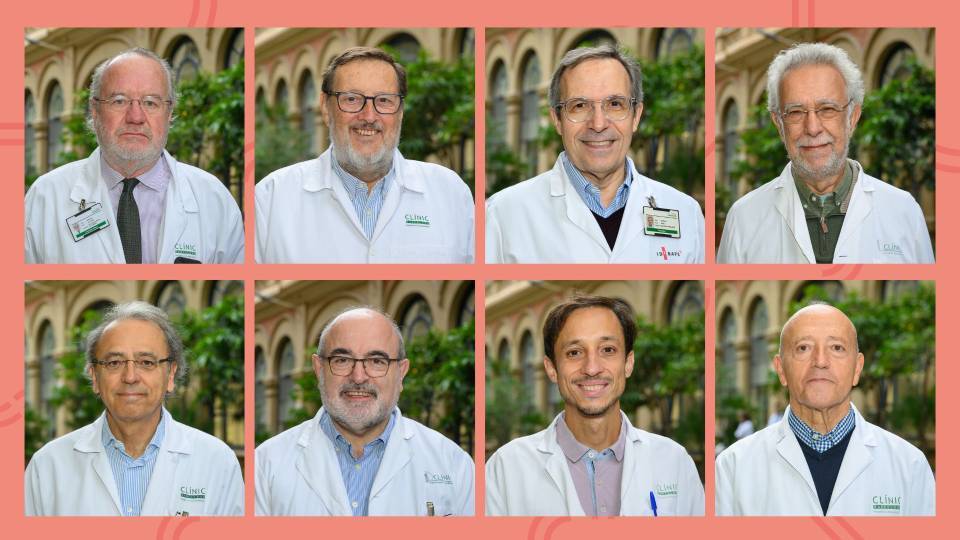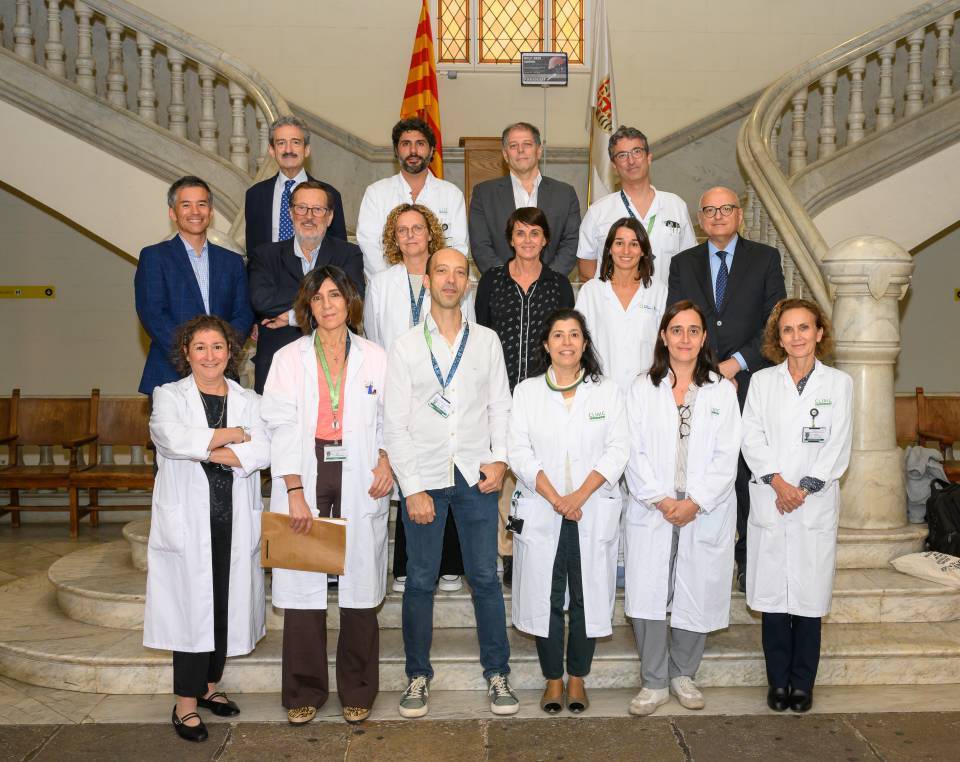Research - Unit of Hepatic Oncology
The Hepatic Oncology Unit carries out intensive clinical and translational research into primary liver cancer (mainly hepatocellular carcinoma and intrahepatic cholangiocarcinoma). The Unit investigates early diagnosis, the efficacy of clinical and therapeutic interventions, and the mechanisms that regulate disease progression. It also studies how to improve processes for patients by analysing their experience and actively collaborating with the Hospital Clínic's Patient Experience Observatory.
The Unit's research is mainly conducted through the August Pi i Sunyer Biomedical Research Institute (IDIBAPS), specifically in the Liver, Digestive System, and Metabolism Area, and in the following group:
Research is also carried out at the Biomedical Research Centre in the Network of Liver and Digestive Diseases (CIBERehd), where the Unit has its own research team at IDIBAPS (BCLC), as well as the research group led by Dr Albert Morales and Dr Silvia Affo.
Main lines of research
At the clinical level, research focuses on defining new diagnostic tools and optimizing the effectiveness of treatments. The group investigates how to refine the selection criteria for indicating radical treatment (surgical resection, transplantation, percutaneous ablation), in order to guarantee maximum efficacy in terms of both survival and associated morbidity.
In the field of treatment, options are being evaluated to improve the efficacy of non-curative treatments. Several studies by the Unit have demonstrated their efficacy in terms of increased survival (arterial chemoembolization, sorafenib, or regorafenib). In addition, in recent years, intensive research has been carried out in the field of systemic therapy based on immunotherapy, mainly in relation to the identification of clinical, analytical, and radiological factors associated with improved survival, the management of adverse effects, and the interaction between the microbiota and the response to this treatment.
Phase 1, 2, and 3 trials are also conducted and led internationally, in collaboration with the biomedical industry, to determine the efficacy of new therapies and molecular agents.
At the same time, the efficacy of adjuvant therapies to prevent recurrence after surgical treatment is evaluated. The Unit designs cancer prevention studies in patients with liver cirrhosis. The group has also been actively involved in studies on the diagnosis, prognosis, and treatment of cholangiocarcinoma.
In terms of translational research, the pathogenesis of hepatocellular carcinoma is being studied, together with the analysis of new signalling pathways and genomic alterations involved in tumour development, as well as the identification of new therapeutic targets, the study of the role of the microbiota in the response to immunotherapy, and the mechanisms involved in tumour plasticity and the tumour microenvironment.
From the point of view of new technologies, the Unit is also developing research and innovation projects related to the use of artificial intelligence applied specifically to the fields of radiology, pathological anatomy, and clinical decision-making.
In the field of nursing care for liver cancer, educational programmes, care pathways designed for patient management, and different treatments are evaluated and designed, including the assessment of patient expectations.


